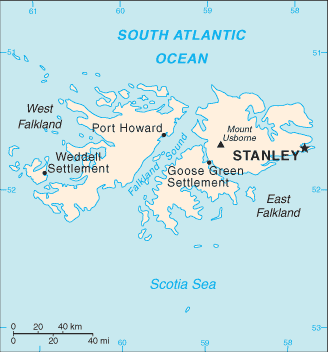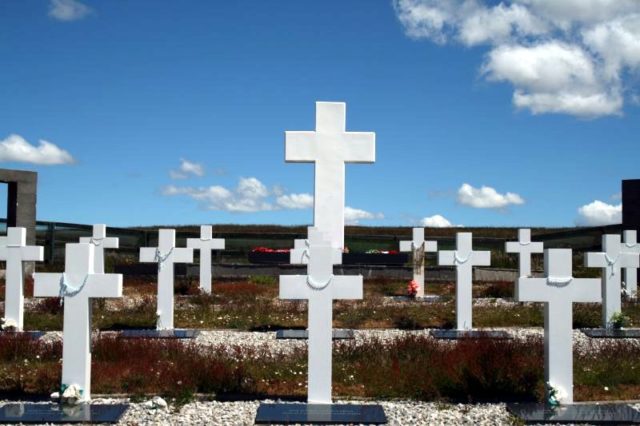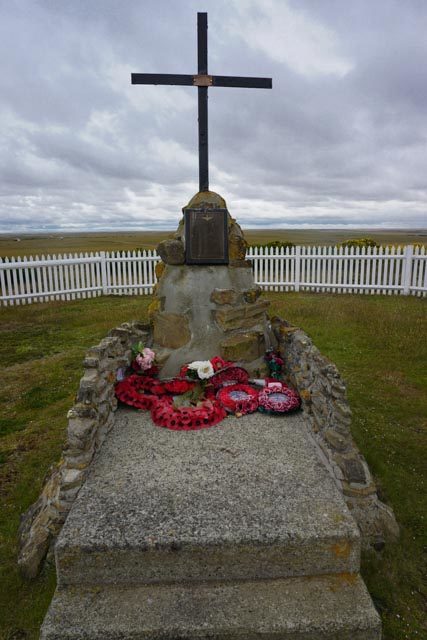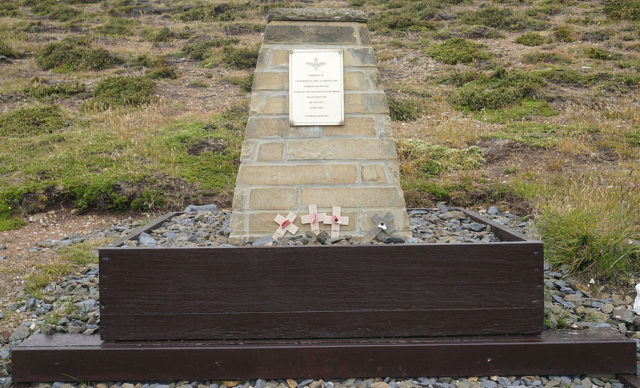I ran across this tidbit and did a bit of digging and got the Article, Go to page 3 of the Article and read it. I had blogged before about the Falkland War several times, I was in high school and I thought the British had a better claim to the island than the Argentinians did. I still have that opinion now. I had made the statement that if Argentina had waited 7 or 8 more months, Britain could have not mounted a force to retake the island, the new austerity measures that were being considered would have grounded her VSTOL aircraft Carriers HMS Hermes and HMS Invincible. Another charge against the BBC was his autobiographical account of the Falklands War, Admiral Woodward blamed the BBC World Service for disclosing information that led the Argentines to change the retarding devices on the bombs. The World Service reported the lack of detonations after receiving a briefing on the matter from a Ministry of Defence official. He describes the BBC as being In more concerned with being "fearless seekers after truth" than with the lives of British servicemen.
The Battle of Goose Green in 1982 was part of the Falklands War between Britain and Argentina. It was especially notable for two things – the high casualty rate and how the British Broadcasting Corporation (BBC) committed treason.
The Falkland Islands, South Georgia, and the South Sandwich Islands are British territory lying much closer to Antarctica than they are to Britain.
They are also closer to Argentina – which is why the Argentines claim them despite everyone else saying otherwise.
On April 2, 1982, they decided to do something about it by invading the Falkland Islands. The following day, South Georgia and the South Sandwich Islands were next – which made everyone go, “Huh!?”
The combined territory comes to barely 1,507 square miles. Being so close to Antarctica they barely habitable.
About the only people not scratching their heads were the British and the Argentines.
To understand this, here is a quick history lesson. Various European nations claimed them until Britain came along in 1690 and said, “Mine!” Spain did the same in 1713, but to make a long story short, their empire collapsed.
Among the territories they lost was Argentina. Though no longer Spanish, Argentines believe they are the successors of Spain’s claim. They were content to let things be till 1982. So why then?
It was because their military government needed a distraction. The country’s economy sucked. Ditto with its human rights record.
Solution? Distract the people with patriotism and do so before the upcoming so-called elections. But how? Hola, Falklands War!
While Britain was no push-over, the Argentine government gambled on three things: the islands have no strategic value; they have virtually no resources, and they are home to only a tiny population of mostly Brits.

The government also considered the British economy. It was not doing too well in the early 1980s, so the hope was that the Brits would be too distracted and too tight-fisted to do anything about an invasion.
Sure, they would scream and stamp their feet, but that would be it.
The Argentines were not at all worried about the UN. The country was constantly being targeted for its human rights violations, so what was another ding from the international community? People would simply get used to it – just like they did with Tibet.
It did not turn out that way, of course. Britain responded quickly with amphibious landings in San Carlos Water on East Falkland on May 21.
Most of the Argentine forces were around Port Stanley, some 50 miles to the east, with others ensconced at Goose Green and Darwin – armed with machine guns, 35 mm cannons, mortars, and artillery.
Goose Green could be ignored. It is a tiny community in Lafonia in East Falkland along the Choiseul Sound. It was also too far away to threaten the ongoing landings at San Carlos – which were not going well.
Colonel Piaggi of the Argentinians.The British had lost a number of ships from aerial attacks, so they needed to fortify the positions they already held. What was meant to be a counter-invasion to take back the Falklands, had instead become a defensive maneuver.
While the Argentine government became popular with its people, things were different in Britain. Some of its population felt the Falklands were not worth fighting and dying for. Therefore to rally the nay-sayers, a bit of PR was needed.
British politicians were particularly worried because the UN Security Council was already talking about a cease-fire. If passed, British troops would be stuck as time and geography were not on their side. All Argentina had to do, on the other hand, was wait.
Britain could not. If it was to take the Falklands back quickly, it had to go on the offensive.
Suddenly, Goose Green looked attractive
Colonel H. Jones
If Britain could take that, it would have access to a large swathe of East Falkland. A ceasefire then would still be annoying, but at least Britain would have a bigger slice of the island with which to annoy Argentina.
Enter Brigadier Julian Howard Atherden Thompson, commander of 3 Commander Brigade. His job was to take on the Argentines around Goose Green and Darwin.
The area was protected by Task Force Mercedes under Lieutenant-Colonel Ítalo Ángel Piaggi, made up of the 12th Infantry Regiment (IR12) and 3rd Company. Defended by 20 mm Rheinmetalls, two radar-guided Oerlikon 35 mm anti-aircraft guns, and a battery of three OTO Melara Mod 56 105 mm pack Howitzers, Thompson’s job would not be easy.
To make it even more challenging, his men could not be flown in. Most of their helicopters had been aboard the Atlantic Conveyor – which was destroyed by Argentine missiles on May 25.
The plan, therefore, was to land troops at San Carlos Bay and have them walk for two days until they reached Goose Green.

On May 26, the 2nd Battalion of the Parachute Regiment (2 Para) under Lieutenant-Colonel Herbert Jones started to do just that. The Argentines were in for a surprise!
Or so Jones thought until he turned on his radio.
He had tuned into the BBC World Service, which was happily telling the world that the 2nd Para was poised to launch a surprise attack on Goose Green. So much for surprises!

Now what!? The 2 Para knew they were greatly outnumbered. Their only advantage lay in surprise, but that clearly went the way of the dinosaurs.
After a healthy round of cussing, Jones vowed to sue the BBC for treason. Ditto with the War Cabinet. Oh, and the entire Thatcher government.
Piaggi was listening to the same broadcast and shook his head in disbelief. Did the British really think he was that stupid!? Hah!
They were obviously going to attack somewhere else and were using the announcement as a diversion. So he told his men to relax.

They were still doing just that when 2 Para attacked. Jones had gambled that Piaggi would think as he did and it paid off.
Piaggi surrendered on May 29 – which, by an interesting coincidence, happens to be Argentine National Army Day.
Thus ended the Battle of Goose Green but it came at a hefty price.
Jones and 17 other Britons died at the cost of 45 to 55 Argentines.
Back in Britain, there was fury over the incident as politicians were rightly accused of wasting British lives for a propaganda stunt.





If you can find a copy of 'Don't cry for me, sergeant-major', get it. It details the story of the Falklands from the task force leaving Southampton to its return but told from the point of view of the journalists embedded with the 'toms' and the toms themselves.
ReplyDeleteHey BadFrog;
DeleteI will look for it, I know some used bookstores in my area.
Not the first time it has happened, and won't be the last... Grrr...
ReplyDelete